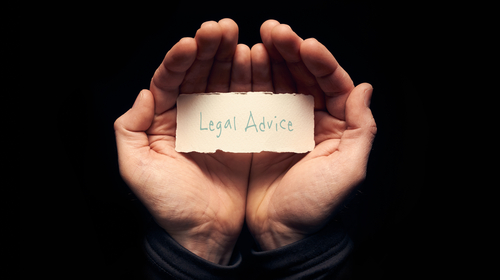Federal judge greenlights legal tech company's use of nonlawyers for legal advice

Image from Shutterstock.
A legal technology company’s use of nonlawyers in a program helping New Yorkers facing debt actions likely does not violate the state’s unauthorized practice of law rules because it is protected speech, a federal judge ruled Tuesday.
Senior U.S. District Judge Paul A. Crotty of the Southern District of New York sided with the tech company, Upsolve, which had filed a preemptive lawsuit in January against New York Attorney General Letitia James asking the court to allow it to move forward with a program called the American Justice Movement.
Upsolve said it had created the program to widen access to justice and offer free advice to New Yorkers, so they understand their rights and whether they have to respond to debt collection actions.
Upsolve is a nonprofit behind an app coaching people facing bankruptcy. Its First Amendment lawsuit claimed that it faced the specter of prosecution if it used nonlawyers to help New Yorkers fill out a one-page state-issued form so they can avoid default judgments.
The Rev. John Udo-Okon, co-plaintiff and a pastor in the South Bronx, New York City, whose congregants frequently come to him with their legal problems, said he could face criminal prosecution or civil penalties for offering legal advice in the program.
But in his opinion and order, Crotty issued a preliminary injunction for Upsolve finding that the First Amendment likely protects the program as “content-based” speech.
“Further, the balance of equities favors an injunction because plaintiffs’ program would help alleviate an avalanche of unanswered debt collection cases while mitigating the risk of consumer or ethical harm,” Crotty wrote in the 33-page ruling.
Crotty added that Upsolve’s program is “carefully limited to out-of-court advice” and “will not threaten the overall regulatory exclusivity of the legal profession.” Therefore, for now, the program can continue without the threat of prosecution.
In a statement, Rohan Pavuluri, the CEO of Upsolve and a 2019 ABA Journal Legal Rebel alongside company co-founder Jonathan Petts, said the lawsuit reflected a “central question” about whether the United States should be a country where low-income people can get access to justice.
“We’re grateful to the court for arriving at this landmark decision and for what it means for the future of the American project,” Pavuluri said in an emailed statement to the Journal on Wednesday. “Yesterday’s ruling is a big step towards achieving that fundamental American promise.”
James’ office did not immediately respond to a request for comment.
From 1993 to 2013, the amount of debt collection lawsuits had more than doubled in the United States from about 1.7 million to about 4 million, according to a 2020 article from the Pew Charitable Trusts. From 2010 to 2019, less than 10% of people were represented by an attorney. Examining data in places where it was available, the article also noted that over the past decade, more than 70% of debt collection lawsuits ended in default judgments.
Upsolve did not ask for a more expansive ruling that the state rules are unconstitutional.
Crotty noted that he was narrowly ruling that Upsolve was likely to succeed on the merits that the unauthorized practice of law rules infringe on its rights to give legal advice under the free speech clause of the First Amendment.
Write a letter to the editor, share a story tip or update, or report an error.


